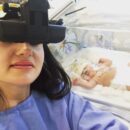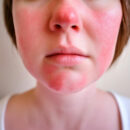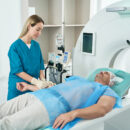Dementia Disease

Bilinci açık bir kişide bellek, dil, yetenek, planlama, yargılama, yürütücü işlevlerde bozulma ayrıca sosyal, iş ve günlük yaşam aktivitesini etkileyecek düzeyde bozulma durumudur. 65 yaş üzeri popülasyonda %10, 85 yaş üzeri popülasyonda %50 oranlarında görülebilmektedir. Yani, ilerleyen yaş ile demans arasında ciddi bir bağlantı vardır.
Although Alzheimer's disease is the most common dementia, other common types of dementia are Vascular dementia, Lewy Bodies dementia and Frontotemporal dementia. Clinically significant differences can be observed between these types of dementia. In this way, an idea can be made about which type of dementia you are facing:
Vascular Dementia: It is a type of dementia caused by damage to the blood vessels in the brain due to improper blood flow. It is the most common type after Alzheimer's. Its effect may vary depending on the size of the blocked vessel. The damage caused by a blockage in a large vessel will cause sudden and large-scale cognitive impairment. If small-scale but numerous infarcts occur in the brain, a cognitive impairment that extends over time may be observed. The most common problems observed in multiple small vessel injuries are problems such as impaired planning, perception and focus problems, uncontrolled laughing or crying, and impaired skills such as finding the right words. In case of large vessel damage, more serious problems such as hemiplegia and hemiparesis may occur after stroke and paralysis.
Dementia with Lewy Bodies: It generally has a course that extends over a longer period of time and a stable cognitive impairment that persists over a long period of time is observed. Visual hallucinations, motor disorders such as Parkinson's disease, and attention deficit are the most common symptoms.
Frontotemporal Dementia: It is observed at younger ages, mostly between the ages of 40-69. It is seen that the person exhibits behavioral disorders rather than memory and recall problems. Personality changes show characteristics such as speaking whatever comes to mind, behaving inappropriately, and not being empathetic towards others (apathy).
Alzheimer'sWhen examined in terms of incidence, it is seen in more than 20 million people in the world. A neurodegenerative disease with such a high incidence naturally poses a serious problem both in terms of health and socio-economic aspects. If you want, let's examine Alzheimer's disease in more depth:
Risk factors;
- Age
– Female gender
– Family history
– Down Syndrome
– Low level of education
– Genetically having the apolipoprotein E 4 gene allele.
Protective factors;
– Use of non-steroidal anti-inflammatory drugs,
– High level of education and mental activation
– Statin use
– Having the apolipoprotein E 2 gene allele
Clinical Features
- Memory: One of the most distinctive features of Alzheimer's disease that distinguishes it from other types of dementia is the way memory impairment manifests itself.
– Recent memory is impaired.
– New information cannot be learned.
– Memory of the distant period is preserved. In other words, the person does not have any problems remembering past memories. As the disease progresses, the memory deficit progresses and remote memory gradually deteriorates.
- Language Defect:
– Especially naming is distorted.
– It is accompanied by impaired understanding.
– Word fluency during speaking is not impaired.
- Drawing clocks and copying shapes is broken.
- There are difficulties in finding direction and problems with getting lost on the road begin.
- There may be behavioral disorders; Depression in the early stages, agitation and aggressive attitudes, delusions, delusions, and sleep disorders may occur later.
- Loses independence in daily living activities. Among them:
– Using the phone
- Transport
– Food preparation
– Responsibility for your medications
– Eating
– Toilet need
– Washing
It is also known that some people experience loss of their sense of smell before clinical findings are observed. This can cause problems such as food burning on the stove and not being able to smell intense odors that others can smell. In such cases, it is very important to go to your neurologist without wasting time and before clinical symptoms appear.
Disease Diagnosis
Diagnosis is made by history, neurological and physical examination, auxiliary laboratory tests, imaging methods and neurocognitive tests.
Treatment
There is no definitive treatment for the disease yet. The drugs used today mostly regulate and slow down the progressive process of the disease. However, interest in dementia treatment has been increasing all over the world, especially recently, and intensive scientific studies are being carried out.
Alzheimer's dementia is a very difficult process for both the patient and the patient's relatives. In this process, memory and understanding gradually deteriorate, as well as daily living activities such as cooking, accounting for money, using medications correctly, eating, dressing, and self-care also deteriorate.
The inability to learn new information due to the deterioration of recent memory causes them to ask the same questions over and over again. Psychological problems are also added to the disease process, and this is a distressing process for the patient and their relatives. Additionally, they have difficulty adjusting to new environments due to difficulty learning new information. For this reason, it is important to care for the patient at home and to inform the patient's relatives about how the disease process develops and the characteristics of the disease.
Dr. Gülsün Akansoy Üstünel
neurology expert
Contact Us For Appointment:
Telephone line: 0392 444 3548 (ELIT)
Contact Form: https://www.elitenicosia.com/iletisim/













